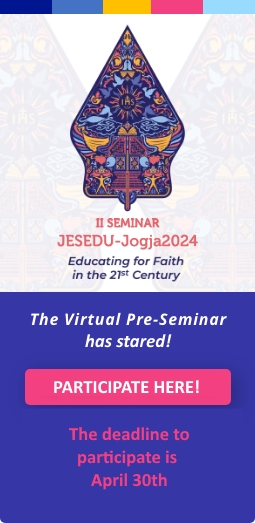One sleepy afternoon in March 2012, I was sitting in a computer room at Arrupe College Jesuit School of Philosophy and Humanities in Harare, Zimbabwe chatting endlessly with friends and browsing the internet. I was coming to the end of my philosophy training as Jesuit, and I was looking forward to moving to the next stage of my training: Regency. Regency is a period between philosophy and theology studies. It is usually two years, but sometimes it could be three or more. As a member of the Eastern Africa Province of the Jesuits, I was ready to go to any of the six countries (Kenya, Uganda, Tanzania, Ethiopia, Sudan, and South Sudan).

That day, as I was enjoying my unhurried conversations at that computer room, an email from Fr. Agbonkhianmeghe Orobator, SJ, who was my provincial superior at that time, arrived. The email read something like this: “based on the conversation I have had with you over the last few months, and trusting in your abilities and God’s work in you, I am going to send you for your Regency to teach at Loyola Secondary School Wau, South Sudan.” I shuddered, went mute, logged out of the email account, and silently left the computer room with fear and trembling. I knew that South Sudan was not going to be an easy mission, yet I accepted to go eventually.
The story in this book is inspired by the experience I had in South Sudan at Loyola Secondary School. I arrived there at a time when the country was struggling to make a difficult transition. South Sudan got its independence from Sudan on July 9, 2011. One year later, in July 2012, I found myself immersed in the post-independence South Sudan.
In 1969, Pope Paul VI said the following while on a visit to Uganda, “by now, you Africans are missionaries to yourselves. The Church of Christ is well and truly planted in this blessed soil.” As an African, I had never thought of mission in that way. I assumed that missionaries only came from Europe and America to work in Africa as I had observed in my native country Kenya. In this book, I narrate some of the experiences I had when I responded to the call to be a missionary to my African people in South Sudan.
Pope Francis, the first Jesuit Pope, in his first exhortation titled Evangelli Gaudium (The Joy of the Gospel), urged Christians and all people of good will not to forget the people living in the margins of society such as South Sudan. As a member of the Society of Jesus, I was happy, although frightened, to be sent to South Sudan. The story that unfolds in the book is one of faith, hope, and love in the midst of uncertainty and the threat of war and violence.
What unfolds in this narrative is not a single story but rather an amalgam of stories. This book narratives my journeys, joys, challenges and the journeys and experiences of other people of faith as they accompanied the South Sudanese people. This is a story of a desire to be a witness to the values of the Gospel in a difficult situation.
The book not only narrates the goings on at Loyola Secondary School but also in what was taking place in other Jesuit educational institutions in South Sudan such as the Multi-Educational Agricultural Jesuit Institute of South Sudan (MAJIS). MAJIS is found in the outskirts of the town of Rumbek in a little village of Akol Jal. I narrate the humble beginnings of MAJIS, the challenges that that small Jesuit educational institution faces and the courage of the Jesuits who worked there.
The enormous needs of South Sudan cannot be accomplished overnight. The presence of people who are in solidarity with the south Sudanese is what is more important. Witness to the Gospel values through a positive presence in the midst many challenges is what Christ continually calls each Christian to do. Christian friendship and hospitality are the most important gift that the people of South Sudan need. The people of South Sudan exude humanity full of dignity and warmth. These people welcome you as a stranger who must become a friend.
According to my lived experience in South Sudan, education seemed to be the greatest need for the country. Education is key in transforming post-conflict situations. I was happy to contribute to the education of future leaders of the new country.
In my journey in South Sudan, I met men and women dedicated to the service of the people in great need. Their lives and enthusiasm for the saving work of God gave me a lot of encouragement and hope for the new country. I met many men and women who left their comfort zones in order to be with the poor people who needed their presence. Sometimes it was only that presence and not much material assistance that the local people needed. I narrate some of the stories of these faithful men and women alongside mine in this book.

 To acquire the book “With God in South Sudan” please click here.
To acquire the book “With God in South Sudan” please click here.
